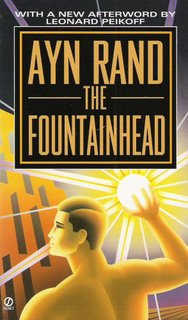 There is something about a tree standing alone which always catches my eye. I don’t know why, but that particular vision always fascinates me. For some unfathomable reason, I associate such an image with human nature.
There is something about a tree standing alone which always catches my eye. I don’t know why, but that particular vision always fascinates me. For some unfathomable reason, I associate such an image with human nature. A lone tree, standing tall and facing strong winds, reminds me of people who never budge from their principles, irrespective of the ramifications of taking their chosen path. Their decision might leave them all alone, facing the adversities ahead without any support to fall back on. It might even lead to their destruction but they remain staunch in upholding what they believe in.
This may sound really weird.. but take a look at this picture and try to imagine what I’m trying to say….
Although it’s a virtue to stand by one’s beliefs, one cannot be sure whether the action of staying rigid will be rewarded by good outcomes or penalized by harsh effects. However for such an individual, the outcomes hardly matter, the penalties hardly affect him. Till the end, he is contented with the fact that he did not let any external circumstance compromise his ideals.
The one individual who fits perfectly into the metaphor of a lone tree and an idealistic man is not a real life person. He is a character (of a novel) who encompasses the whole concept of individualism. People who have a reading habit might have already guessed who I’m talking about.
 Howard Roark – the man who does not understand other people but knows what he wants to do in his life; the main protagonist of the brilliant novel by Ayn Rand, The Fountainhead. Although it is difficult to describe his character without explaining the storyline of the book, the following excerpt from a character analysis I found on the internet comes close.
Howard Roark – the man who does not understand other people but knows what he wants to do in his life; the main protagonist of the brilliant novel by Ayn Rand, The Fountainhead. Although it is difficult to describe his character without explaining the storyline of the book, the following excerpt from a character analysis I found on the internet comes close.
“Roark is fiercely independent. He believes in the merit of his revolutionary designs and has the courage to stand for them in the face of an antagonistic society. He is presented as the author’s version of an ideal man—one who embodies the virtues of Ayn Rand’s Objectivist philosophy. Roark is the antithesis of contemporary belief that an individual is molded by social forces. He is not the product of his upbringing, his economic class, his family, his religious training, or his social background. He is a product of the choices he has made. Roark is an example of free will—the theory that an individual has the power, by virtue of the choices he makes, to control the outcome of his own life. A man’s thinking and values are not controlled by God or the fates or society or any external factor—but solely by his own choice. Others may choose to submit, but Roark will not. He is his own man.This may sound really weird.. but take a look at this picture and try to imagine what I’m trying to say….
Although it’s a virtue to stand by one’s beliefs, one cannot be sure whether the action of staying rigid will be rewarded by good outcomes or penalized by harsh effects. However for such an individual, the outcomes hardly matter, the penalties hardly affect him. Till the end, he is contented with the fact that he did not let any external circumstance compromise his ideals.
The one individual who fits perfectly into the metaphor of a lone tree and an idealistic man is not a real life person. He is a character (of a novel) who encompasses the whole concept of individualism. People who have a reading habit might have already guessed who I’m talking about.
 Howard Roark – the man who does not understand other people but knows what he wants to do in his life; the main protagonist of the brilliant novel by Ayn Rand, The Fountainhead. Although it is difficult to describe his character without explaining the storyline of the book, the following excerpt from a character analysis I found on the internet comes close.
Howard Roark – the man who does not understand other people but knows what he wants to do in his life; the main protagonist of the brilliant novel by Ayn Rand, The Fountainhead. Although it is difficult to describe his character without explaining the storyline of the book, the following excerpt from a character analysis I found on the internet comes close.Because Roark is his own man from the beginning, there is no change in the essence of Roark’s character. He learns a significant amount over the course of the story but his fundamental convictions remain untouched. The essence of his character is an unswerving devotion to his own thinking and judgment. Roark is like this from the first moment of the story to the last—and, most likely, he has been this way since early childhood. An independent man like Roark learns a great deal of content in his life—indeed, because of his commitment to the fullest use of his own mind; he is the only type of person who can. But his method of functioning, his devotion to autonomous thinking, does not change.
His first-handed method is also the principle that explains Roark’s integrity. Integrity, according to Ayn Rand, is commitment in action to one’s own best thinking, to one’s own mind. Integrity is the “practice what you preach” virtue—the principles that you must put into practical action the ideas you hold. But first, of course, you must hold ideas. Integrity requires a man to be a thinker. Howard Roark meets both of these requirements. He is a brilliant thinker and he acts on his thinking. He is not a hypocrite.
Further, Roark is a selfish man, in the positive sense that Ayn Rand means this. He is true to his values, to his convictions, to his thinking, to his mind, to his self. To be true to his self, a man must first have a self. He must think independently, he must judge, he must form values and he must act in pursuit of those values. He must never sacrifice them. This is exactly what Roark does: The integrity of his design is far more important to him than the money or recognition that will accrue from the commission. In remaining true to his values and judgment, Roark is true to the deepest core of his self. This is selfishness in its highest and best sense.”
For more of this , log on to : http://www.cliffsnotes.com/WileyCDA/LitNote/id-111,pageNum-47.html
According to me, the shortest conversation that depicts Roark's personality most powerfully is the following:-
Ellsworth Toohey: We're alone. Why don't you tell me what you think of me.
Howard Roark: But I don't think of you.
(For people who have not read the book and yet are interested to know : Ellsworth Toohey is the guy who effectively destroyed Roark's career because he felt that Roark's individualism and refusal to bend down were a threat to his(Toohey's) power of swerving the crowd's opinion.)
The existence of a real life individual resembling the character of Howard Roark is almost impossible in today’s society. I say ‘almost’ because a little glimmer of hope still remains in my mind, trying to keep alive the possibility that people with such singularly focused thought processes may still find acceptance in today’s world.
Hmmm..I moved from botanic images to literary reviews. That’s either because of a vast spectrum of thoughts or a really messed up brain which cannot remain focused on a single topic.
How does it matter?
3 comments:
I am left pondering over parallel that you have drawn..Have slightly different view with regard to a standing tree..will let you know my opinion. However the style and usage of words seemed as if I am reading an article written by me :-).
I am left pondering over parallel that you have drawn..Have slightly different view with regard to a standing tree..will let you know my opinion. However the style and usage of words seemed as if I am reading an article written by me :-).
The book is about portraying the highly ignored individuals as the hero and the Hero's of every other novels as the Villains.
The writer is doing the job of Toohey by being a chauvinistic about the individualism and she became fanatic about the socialists.
The world has been run by Toohey's and not by Howard's, She made that character a strong and interesting but unnatural to convince people that individuals are also be Hero's.
Though world is going towards the individualism and it will be the last phenomenon that will be the end of human race.
Post a Comment